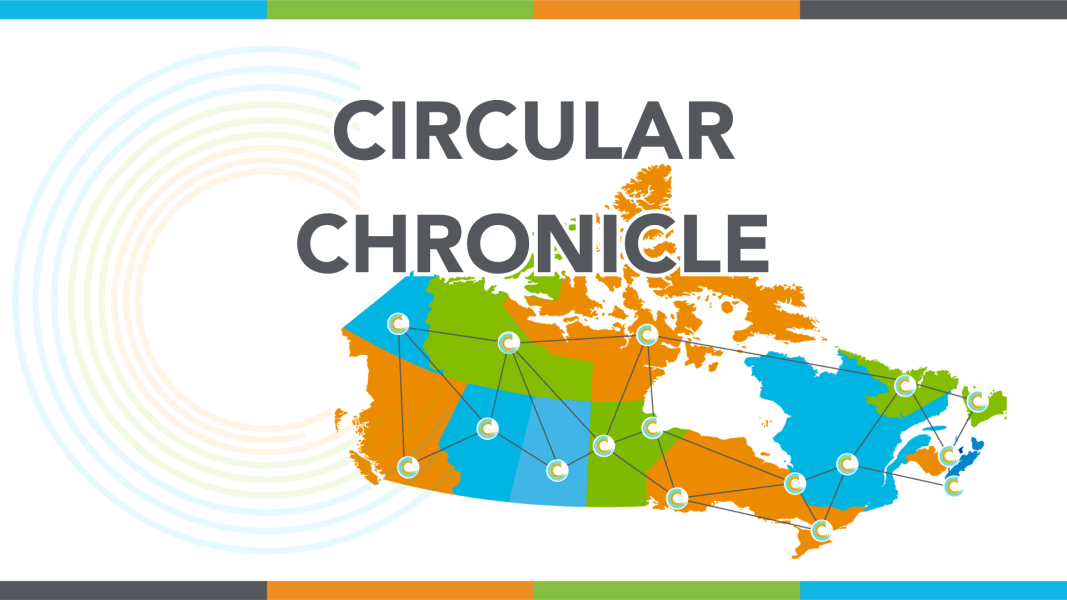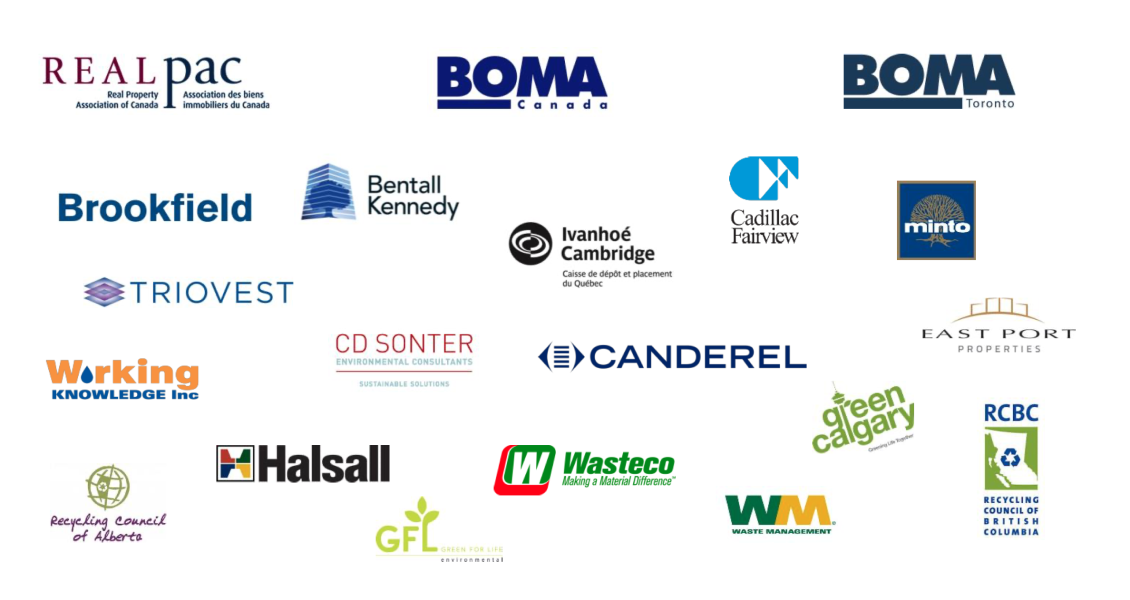
As Recycling Council of Ontario we initiated a first-in-Canada study on solid waste data collection to meet a growing need for industry-specific benchmarking that provides relevant, comparable information on waste and recycling.
Solid waste diversion is a key environmental and operational performance indicator. An obstacle to increased diversion and reduced waste generation among Canadian organizations stems in part from an absence of quality data to help inform comparable performance on a national scale.
This study on solid waste data collection met a growing need for industry-specific benchmarking that provides relevant, comparable information on waste and recycling.
The National Solid Waste Benchmarking Study features generation and diversion data from 1,012 office and retail properties from across the country, and is an important first step in addressing the need for industry-specific waste benchmarking.
Thank you to individuals and organizations that provided support throughout the planning and implementation of the National Solid Waste Benchmarking Study. We relied on candid input from its stakeholder planning committee, as well as individuals and companies that provided advice and shared their performance data. Thank you to outreach partners for sharing the study’s importance and encouraged participation.

Solid waste diversion is a key environmental and operational performance indicator tracked by a growing number of real estate management companies at both corporate and property levels. The amount of waste generated, recycled, and disposed of has implications to operational costs, and is a tangible indicator of stakeholder engagement. A successful waste diversion program includes participation from employees, occupants, shoppers, and/or visitors, depending on type of business. An impediment to increased diversion and reduced waste generation among Canadian organizations stems in part from an absence of quality data to help inform comparable performance on a national scale. Specifically, there is no national resource to reference waste generation and diversion rates by organization type. In addition, there is a lack of standard quality for measurement and tracking to enable informed analysis of how organizations in the Industrial, Commercial, and Institutional (IC&I) sector manage waste.
In response, we initiated a first-in-Canada study on solid waste data collection to meet a growing need for industry-specific benchmarking that provides relevant, comparable information about this Key Performance Indicator (KPI). Specifically, we sought to address the ongoing issue of waste data reporting by two broad categories: residential and non-residential (or IC&I). Statistics Canada reports that non-residential (or IC&I) sectors had a 19 per cent diversion rate in 20102 – performance rate that is attributed to diverse organization types or subsectors: office buildings, schools, hospitals, restaurants, and manufacturing facilities. Consequently, the 19 per cent diversion rate may not reflect subsector performance, making it difficult for organizations to benchmark their own performance against peers. We embarked on the benchmarking study in part to demonstrate the need to analyze waste data by subsector.
Leveraging established relationships with office and retail properties via membership and program participation, such as 3RCertified, RCO Awards, and Take Back the Light, we chose to focus on three building types: Office, Retail Centre, and Retail Store.
In doing so, a voluntary survey was developed to collect waste generation and diversion performance among office and retail buildings across Canada to arrive at an average performance rate. The survey contained mandatory and elective questions that include basic information about the participating buildings, followed by questions specific to waste management operations and on-site or corporate waste diversion programs.
We respectfully acknowledge that we live, work and play on the traditional territory of many Indigenous Nations and we humbly extend our respect to Indigenous individuals, communities and Elders, past and present, as the traditional custodians of this land.
Circular Innovation Council is a registered charity.
Charity Registration Number: 119112118 RR 0001